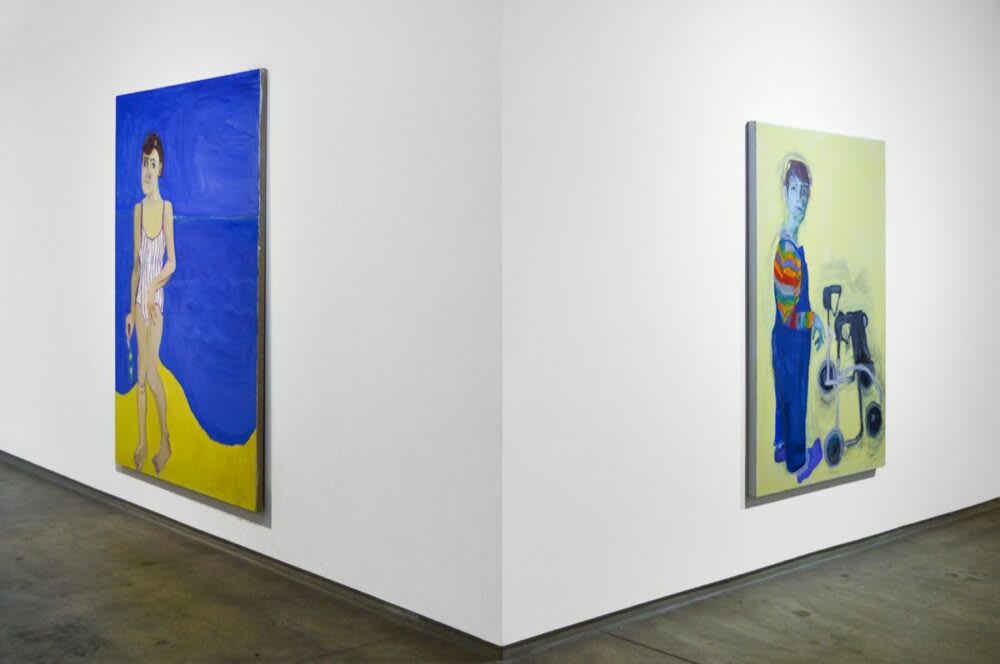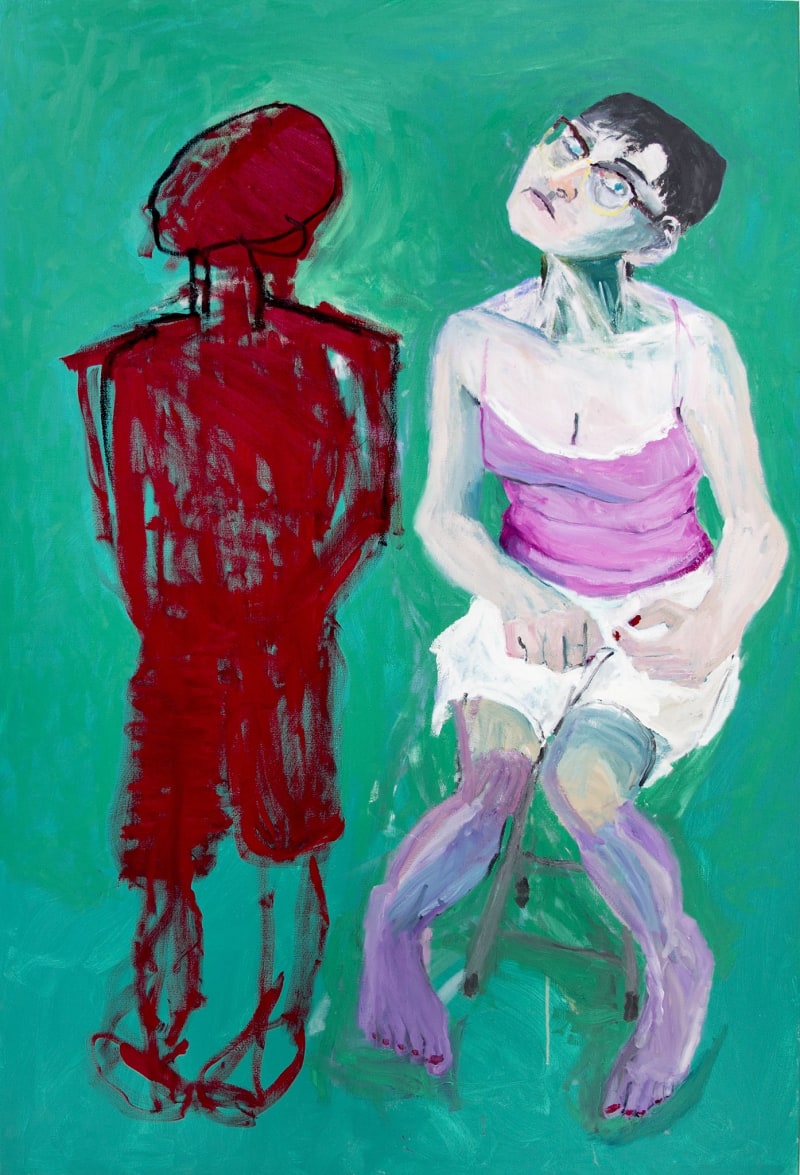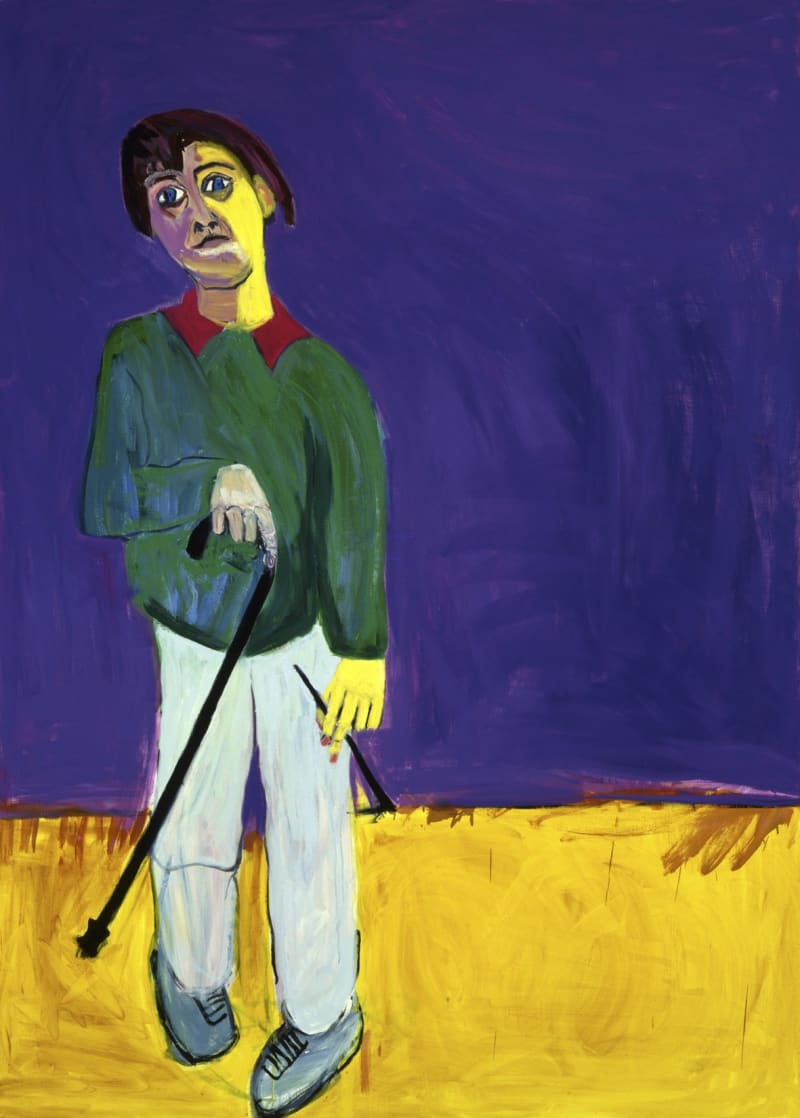Overview
Flowers Gallery is delighted to announce an exhibition of self-portraits by British artist Lucy Jones, presenting a selection of work from the past twenty-five years.
Known for her frank and revealing representations of the issues surrounding identity, Jones' paintings address conventional notions of femininity, ageing and disability, through her close observation of the self.
Using herself as the model, Jones explores ideas of the 'gaze', claiming her own authority within the relationship between the viewer, artist and subject. She has said: "I look at you. You look at me. I let you look at me. YOU PROJECT ONTO ME." Jones paints the props and supports in her life, including her glasses, walking sticks and her wheelie, examining their role in shaping her personal sense of self and the perceptions of others. Addressing the feminine image in works such asFlushed, 2006, the artist poses in fancy underwear, expressing the concealed human desire to be loved, and, in her own words, being "allowed to love someone else."
Representing the unseen remains important throughout Jones' work. She considers the inner likeness to be more important than the exterior, which is sometimes referred to by the artist as a mask. In her early self-portraits, Jones reflected the conflicting sides of her personality, by splitting the canvas into two parts. There are echoes of this duality inHow Did You Get on This Canvas?, 2013, in which the artist's own shadow presents the externalization of hidden interior emotions.
Jones sees the rectangular format of the canvas as providing the ideal framework within which to use the language of painting and drawing as an expressive force. Jones explores the relation of her body to its surroundings, often enclosing the figure within oppressive fields of color. In works such asThis Piece of Paper Seems Too Small, 2006, the absence of surrounding space draws the viewer closer to the image, in which Jones contorts her body to fit the frame, her shoulders wedged against its vertical borders.
She has described her work as having an "awkward beauty", transforming the angular and unwieldy subject through her rhythmical balance of brilliant, complementary colors and tones. Jones identifies with artists such as Matisse and Derain for their radically non-naturalistic palette, and with milie Charmy, for the raw and expressive handling of both her materials and the subject matter of the female image.
Through her candid approach to the subject matter, Jones has also reached beyond the personal to approach a conversation with the viewer about a universal, shared experience. As she says: "By looking at myself I'm trying to reflect something about being human."











